Tax Fraud / Tax Scams / Tax Evasion
Simply put, tax evasion is the act by any person, business or entity to illegally evade paying taxes. Tactics used in tax evasion include the misrepresentation of income and profit by reporting less than actually earned and taking additional deductions that are not allowed by law.
An example of tax evasion would be an individual who earns income in cash and does not report it to the Canada Revenue Agency in order to pay less tax. Businesses also can be found guilty of tax evasion if they purposefully report fewer sales than actually made to avoid taxes on any additional sales transactions.
Another lesser known type of tax evasion is the evasion of VAT (value added taxes) and sales taxes due to purchases outside of the tax jurisdiction where an individual resides. In simple terms, if you purchase an item in a region that charges less sales tax or VAT than where you reside, you must report such purchases and pay the corresponding tax to avoid breaking the law. Consumers that purposefully purchase in lower tax areas with the intent to pay less tax are also committing tax evasion.
According to Section 238 of the Income Tax Act, if an annual tax return is not completed and filed, then an individual is guilty of a summary offense and can face a fine between $1,000 and $25,000. A judge may also sentence the offender to up to twelve months of incarceration.
In addition to not completing an annual income tax return, an individual can also be found guilty of a summary offense if they misrepresent or mislead the Canada Revenue Agency with false statements intended to assist the individual in evading taxes. Section 239 of the Income Tax Act states that for this specific type of tax evasion fines of at least 50% but no more than 200% of the total amount of taxes evaded must be paid. In these cases, a judge may also sentence the offender to a maximum of two years of jail time as well as additional monetary fines.
If the CRA has charged you or is threatening to charge you with tax evasion, then it is important that you consult a tax lawyer today to find out where you stand and answer any questions or concerns you are likely having during this stressful time. Barrett Tax Law, a Canadian tax law firm operating throughout Canada, offers free consultations with a tax lawyer to small business owners, self-employed individuals, and those involved with non-profit organizations and charities. Call today for a no obligation and confidential legal consultation at toll-free 1-877-8-TAX-TAX Canada-wide or email consultation@fightthecra.ca .
Tax fraud is the illegal offense of purposefully trying to evade paying taxes that are owed to the government of Canada by law.
If you are being criminally prosecuted or fear you will be prosecuted by the CRA for tax fraud, it is imperative that you speak with a tax lawyer as soon as possible to find out all of your options and ask any questions you may have. Canadian tax law firm, Barrett Tax Law, is pleased to offer free consultations with a tax lawyer to self-employed individuals, small business owners and those involved with a non-profit or charitable organization at toll-free 1-877-8-TAX-TAX throughout Canada or consultation@fightthecra.ca .
The underground economy consists of any commercial activity that is not recorded and reported to the Canadian government for tax purposes. This only applies to income that would be taxable if it were reported. Cash payments and transactions often result in the non-reporting of income which is prevalent in areas like construction and hospitality. According to the Canada Revenue Agency, income received in cash does not make one exempt from paying due taxes and is considered tax evasion, which could result in convictions, penalties, fines and even incarceration. For further information on the penalties and consequences of tax evasion please see Question 2: “What are the penalties for tax evasion?”
Yes, yes and YES! Although it is not the norm, the Canada Revenue Agency can and does refer cases to the courts for criminal prosecution. During the 2008/2009 tax year, 164 cases were sent to the Public Prosecution Service of Canada and 58 GST audits to the Ministere de la Justice du Quebec for criminal prosecution. A total of 257 cases resulted in criminal convictions for tax evasion or tax fraud, as a result of previous years. referrals. If you fear you may be in danger of being criminally prosecuted for tax evasion, tax fraud or any other tax related criminal charge, then it is imperative you stop reading this and consult a tax lawyer now.
Barrett Tax Law, a Canadian tax law firm serving throughout Canada, is pleased to offer the self-employed, small business owners, and individuals involved with a non-profit or charitable organization a free consultation with an experienced tax lawyer at 1-877-8-TAX-TAX or consultation@fightthecra.ca . All legal consultations, regardless of whether Barrett Tax Law is hired to represent the client, is protected by lawyer-client privilege and is thus completely confidential.
Yes, incarceration is a possibility if found guilty of tax evasion or tax fraud. Under the Income Tax Act and the Excise Tax Act, the Canada Revenue Agency has various civil and criminal actions it can take which can lead to monetary fines, penalties and even prison time.
In 2005-2006, the CRA prosecuted a number of cases and 94% of those resulted in convictions. However, not all convictions resulted in jail time. These court cases are publicized through the media in order to help deter future acts of tax evasion or tax fraud.
An extensive list of CRA convictions organized by region can be found here: http://www.cra-arc.gc.ca/nwsrm/cnvctns/menu-eng.html
See Question 2:”What are the penalties for tax evasion?” for more details on the penalties that could be applied for tax evasion conviction.
If you are concerned that you may be found guilty and possibly serve a prison sentence for tax evasion, then consult a tax lawyer right away. Free legal consultations are provided by Barrett Tax Law, a Canadian tax law firm, to small business owners, self-employed persons and individuals involved with non-profit or charitable organizations. Call 1-877-8-TAX-TAX or email consultation@fightthecra.ca to book your free consultation with a tax lawyer.
The major difference between tax avoidance and tax evasion is that tax avoidance is legal while tax evasion is not. The definition of tax avoidance is using tax law or code legally to the benefit of oneself in order to pay less tax. This can include, for example, moving to a different country, state or region solely because income taxes are lower. Tax evasion, on the other hand, is the illegal act of misrepresenting or misleading tax authorities in order to pay fewer taxes. This is mostly done through improper and untruthful tax returns; for example, failure to report income received in cash.
The Canada Revenue Agency does impose penalties for repeated misrepresentation on tax returns if it occurs twice within a four year period. For example, if a tax return filed for 2007 was reassessed by the CRA to include unreported income and the same situation occurs in 2010, a fine will be imposed. The federal and provincial fines are both equal to 10% of the unreported income for the current year.
However, the Canada Revenue Agency does encourage individuals to voluntarily disclose the amount of misrepresentations. The CRA states that the above penalties may be waived if an individual voluntarily provides this information. More information can be found in the Voluntary Disclosure Program FAQ page.
It is important to note that for Quebec residents only the federal fee is assessed. The provincial tax is dealt with by Revenue Quebec. Canadian non-residents and deemed residents are only subject to the provincial penalty if the provincial tax is payable.
There may be additional penalties if an individual has purposefully or with gross negligence made untruthful statements or exclusions. The penalty is equal to $100 plus 50% of the unstated tax or the false additional deductions claimed by the taxpayer.
The CRA’s Special Enforcement Program (SEP) focuses on individuals who are suspected of acquiring income illegally. Such individuals can be subjected to fines, penalties or jail time depending on the severity of illegal activities. Tax audits and investigations of suspected persons can also lead to the seizure of goods if the individual does not pay the required fines imposed by the CRA. The goal is to reduce the monetary profits and incentives that often lead to criminal activity.
The CRA’s Criminal Investigation Program (CIP) examines serious violations of tax laws such as tax evasion and tax fraud. These criminal investigations often lead to convictions which can result in fines and even imprisonment. Not only are convicted individuals required to pay fines required by the judicial system (up to 200% of unpaid taxes), they also must pay all of the taxes owed in addition to penalties and interest charges as enforced by the CRA.
The Informant Leads Program is the organized effort by the CRA to gather all leads concerning non-compliance with tax legislation by individuals or businesses. The goal is to coordinate all information received and take any warranted enforcement action. There are five centers throughout Canada which allow informants the opportunity to share information. This can be done anonymously if desired; however, the CRA states they do not share any of the informant’s information.
The Atlantic Region Informant Leads Centre can be reached at the following telephone and mailing address:
Toll-Free Line: 1-888-674-1699
Local Telephone: 506-636-4657
Fax Line: 506-636-5316
Mailing Address:
Atlantic Region Informant Leads Centre
Saint John Tax Services Office
126 Prince William Street
Saint John, New Brunswick
E2L 4H9, Canada
The hours of operation are from Monday through Friday from 8:15am to 4:30pm local time.
The Quebec Region Informant Leads Centre can be reached at the following telephone and mailing address:
Toll-Free: 1-866-896-6317
Fax Line: 450-926-7006
Mailing Address:
Quebec Region Informant Leads Centre
Monteregie-Rive-Sud Tax Services Office
3250 Lapiniere Boulevard
Brossard, Quebec
J4Z 3T8, Canada
The hours of operation are from Monday through Friday from 8:15am to 4:30pm local time.
The Ontario Region Informant Leads Centre can be reached at the following telephone and mailing address:
Toll-Free: 1-866-809-6841
Local Telephone: 905-984-4830
Fax Line: 905-984-4829
Mailing Address:
Ontario Region Informant Leads Centre
St. Catharines Tax Services Office
32 Church Street
Post Office Box 3038
St. Catharines, Ontario
L2R 3B9, Canada
The hours of operation are from Monday through Friday from 8:15am to 4:30pm local time.
The Prairie Region Informant Leads Centre can be reached at the following telephone and mailing address:
Toll-Free Line: 1-866-453-0450
Fax Line: 204-984-6721
Mailing Address:
Prairie Region Informant Leads Centre
Winnipeg Tax Services Office
325 Broadway, 5th Floor
Post Office Box 1022
Winnipeg, Manitoba
R3C 2W2, Canada
The hours of operation are from Monday through Friday from 8:15am to 5:00pm local time.
The Pacific Region Informant Leads Centre can be reached at the following telephone and mailing address:
Toll-Free: 1-866-846-3535
Fax Line: 250-470-5060
Mailing Address:
Pacific Region Informant Leads Centre
Southern Interior Tax Services Office
c/o Surrey Tax Centre
9755 King George Boulevard
Surrey, British Columbia
V3T 5E1, Canada
The hours of operation are from Monday through Friday from 8:15am to 4:30pm local time.
The information provided above does not constitute legal advice and should not be relied upon as such, since it has been written with a limited picture of the situation. In order to obtain proper legal advice, a lawyer must be aware of all of the details of your particular case. If in doubt, please obtain the advice of a lawyer. You may be eligible to receive a free telephone consultation with a tax lawyer at Barrett Tax Law. For details, call 1-877-8-TAX-TAX today or click here.







